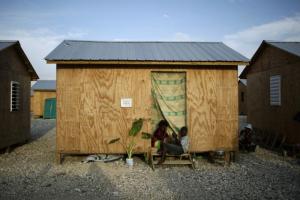Haiti Place Nonprofits
Regime Change for Humanitarian Aid
News Information
- NEWS_POSTED_BY: Haiti NGOs
- NEWS_POSTED_ON: Aug 05, 2015
- Views : 234
- Category : General News
-
Description :
Foreign Affairs
How to Make Relief More Accountable
By Michael Barnett and Peter Walker
July/August 2015 Issue - Location : United States
- Website : https://www.foreignaffairs.com/articles/2015-06-16/regime-change-humanitarian-aid
Overview
- The global humanitarian system, already under considerable strain, will soon be tested as never before. In 2013, the gap between the funds available for humanitarian aid and estimated global needs reached $4.5 billion, leaving at least one-third of the demand unmet. The gap seems certain to widen, as key donors cut their contributions and humanitarian disasters grow more frequent and severe. Complex humanitarian emergencies, such as the war in Syria, have shown just how poorly the world is prepared to respond to human suffering on a large scale, despite considerable practice. The international community’s response to last year’s outbreak of Ebola in West Africa, for example, was slow off the mark and then stumbled, leaving everyone worried about future public health emergencies. Meanwhile, climate change has increased the destructive force of natural disasters, which fuel violence and put tremendous pressure on governments and aid agencies alike. And rapid urbanization, coupled with massive migration to coasts, has amplified the toll of such crises.
Small wonder, then, that the humanitarian community consistently falls short of expectations—both those of outside observers and its own. To some extent, that is due to factors beyond its control. Humanitarians confront problems that offer no easy solutions. They must contend with powerful funders who would rather make feel-good pledges than actually pay up, with donors who expect relief work to serve their own interests above those of local populations, and with disasters that leave first responders as exposed to the dangers they are responding to as the victims themselves. Complex crises of the kind roiling Syria often require aid workers to plead with warlords, rebels, and guerilla groups for the privilege of helping the vulnerable, only to be denied entry or forced at gunpoint to pay a heavy surcharge.
Yet humanitarians also bear some responsibility for their shortcomings. Although donors and publics once held aid agencies to be beyond reproach, awareness of their faults has grown, as has the understanding that on occasion, they can do more harm than good. For all the gaps in funding, humanitarian budgets still attract plenty of aid providers who resemble little more than ambulance chasers in white Land Cruisers; at times, their arrival brings to mind a traveling circus. The victims often see badly needed resources go to waste or disappear, and few true partnerships between relief agencies and local populations have emerged. Most crucial, victims can rarely hold humanitarians accountable for shoddy work. These shortfalls do more than create a bad reputation for crisis responders; they also cost lives.
The humanitarian community is keenly aware of these flaws, and during the past two decades, it has made remarkable progress in improving its competence, coordination, and professionalism. But aid workers have enjoyed much less success in other critical areas, including the creation of genuine partnerships with, and accountability to, local populations. Relief work remains something done to others, not alongside them.
Read more here >>
